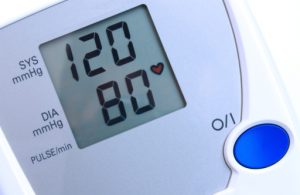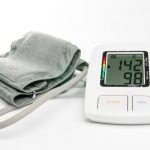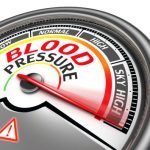
A normal blood pressure reading has long been agreed to be 120 over 80 but with aging, blood pressure can run as high as 140. The SPRINT study which looked at 9,300 seniors has now revealed what blood pressure numbers should really be for seniors to reduce the risk of cardiovascular events.
Changes made to blood pressure guidelines for seniors

The study found that those who were randomized to the systolic reading of 120 had lower events of heart attack and other cardiovascular events. The results were in comparison to those who maintained a systolic blood pressure of 140. Furthermore, researchers saw a 25 percent drop in the risk of death in the lower blood pressure group.
With the use of medications – adding medications or adjusting preexisting ones – doctors were able to achieve blood pressure of 120 in the senior participants. The take away from the study is not only are doctors able to reduce blood pressure to 120, but they will also achieve better health outcomes as well.
There are concerns that lowering a senior’s blood pressure to 120 or less is dangerous because they have stiffer circulation and may not be able to handle blood pressure that low. Doctors need to understand more about how to safely bring blood pressure down; however, so far it has shown to greatly improve seniors’ lives.
Seniors and high blood pressure

Nearly 65 million American adults have high blood pressure. Risk factors for hypertension are:
- Being overweight
- Having a family history of high blood pressure
- Consuming too much salt
- Consuming too much alcohol
- Not getting enough potassium
- Lack of physical activity
- Certain medications
- Chronic stress
- Smoking
As you can see, numerous lifestyle factors are involved when it comes to blood pressure, so by embarking on a healthy lifestyle you can naturally support healthy blood pressure. Furthermore, high blood pressure is a known risk factor for many cardiovascular events, so lowering it can greatly improve your heart as well.
If you have concerns about your blood pressure, try to get in more exercise and consume a healthy diet. Lastly, speak with your doctor who can help you with a blood pressure-lowering regimen.